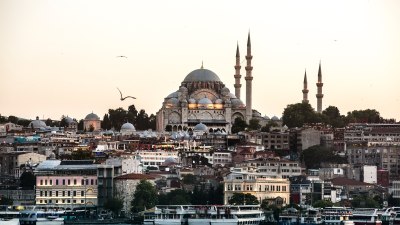What It’s Like to Visit a Country With No Roads
Discover the unique experiences of visiting a country without roads. Explore transportation, culture, and landscapes.

Image by botlekostyabatler on Freepik
Visiting a country with no roads is akin to stepping into a different world, where modern conveniences like cars and buses are replaced by modes of transportation that are as varied as the landscape itself. Such countries might seem like distant memories of a simpler time, yet they offer travelers an opportunity to see life lived in a way that connects more intimately with nature. The experiences are immersive, challenging, and rich with stories waiting to be uncovered.
Understanding Roadless Countries
When we think of a 'country', we often picture bustling highways, busy cities, and the hum of engines. However, there are places where roads are a luxury or simply non-existent. Examples include remote islands, indigenous territories, or regions with extreme weather conditions that make road construction impractical. For instance, the dense Amazon rainforest, certain Pacific islands, and parts of Bhutan are known for their limited road infrastructure. In these beautiful countries, nature dictates the way of life and travel.
Unique Modes of Transportation
In roadless regions, alternate forms of transportation become vital for daily life and connection. Boats, canoes, and ferries serve as essential vessels for moving from point A to B over water. In places like Madagascar, traditional pirogues (dugout canoes) sail through mangroves and rivers, showcasing the stunning local ecosystems. Alternatively, in the Arctic, dog sledding remains a cherished method of navigating the snowy wilderness.
Walking is another key mode of transport. Many cultures emphasize the importance of hiking as a means of getting around. In Bhutan, for example, trekking up steep hills to reach remote temples or villages is commonplace, offering breathtaking views and a strong connection to the landscape. Additionally, in regions where terrain is rugged, such as the mountainous regions of Papua New Guinea, air travel via small bush planes and helicopters becomes essential for longer distances.
Cultural Immersion
Without roads, travelers often find themselves more integrated into the local culture. The slow pace of life allows for genuine connections with the people. Many indigenous tribes in these countries prioritize communal activities, storytelling, and shared meals, which can lead to enriching experiences. Visitors frequently participate in traditional events and rituals that are less diluted by tourism.
Food is another way to connect; in a roadless country, you might be invited to partake in local dishes that hold cultural significance. From fishing in the fjords of Norway to gathering crops in Nepal, food sourcing can be a hands-on and deeply engaging subject. Guests might even learn how to cook traditional meals directly from locals, fortifying bonds and enriching the travel experience.
Engaging with the Environment
Nature plays an integral role in these countries, often dominating the landscape. Visitors have the chance to immerse themselves in spectacular natural beauty. Rare wildlife, brilliant plant life, and stunning terrains are highlights. For instance, traveling through the Baliem Valley in Indonesia allows you to explore lush, green hills, encountering flora and fauna found nowhere else on Earth.
Eco-tourism emerges naturally from this environment, leading many visitors to support local conservation efforts. Many communities across roadless countries are deeply committed to preserving their surroundings, making it vital for tourists to remain respectful and engaged. Participating in conservation programs or local farming initiatives often leaves a positive impact.
The Challenges of Travel Without Roads
While traveling in roadless countries presents unique experiences, it’s not without its challenges. Limited transport options can lead to longer travel times and logistical issues. Weather can affect accessibility, with rain, fog, or snow grounding air travel or slowing boat transit. Travelers need to maintain a flexible schedule; imposing strict itineraries is often impractical.
Furthermore, communication may be challenging in areas without modern infrastructure. Access to information and connectivity can be limited, requiring travelers to rely on local knowledge and navigational skills. Engaging with the community for directions or travel tips becomes essential, fostering deeper connections.
Appreciating the Journey
A major takeaway from visiting roadless countries is the appreciation for the journey itself. Without the distraction of highways, people, and bustling city areas, travelers often find themselves more present – both in terms of their physical space and their emotional state. The slower pace allows for meditation, contemplation, and a deeper connection with one’s surroundings.
Traveling through breathtaking landscapes, seeing rare wildlife, and witnessing the sunset over a serene waterway can become profound reminders of our place in the world. The overall experience can enhance awareness and mindfulness, two critical aspects that are often overshadowed by fast-paced modern life.
Preparing for Your Adventure
If you’re tempted to embark on a journey to a country with no roads, preparation is key. Researching the region, its customs, and modes of transportation will enrich your experience. Packing light, bringing essentials, and leaving room for flexibility can make all the difference. Enlisting the services of local guides can also create a more enjoyable experience, as they possess knowledge about the area and can help navigate through complexities.
Engaging with local communities is often a rewarding aspect of traveling in these regions. Be open to learning from different cultures and prepared for unexpected adventures ranging from wildlife encounters to helping build local infrastructure.
The Future of Roadless Countries
As development pressures increase globally, the future of roadless countries is uncertain. On one hand, globalization can bring economic benefits; on the other hand, it poses risks to cultural heritage and pristine environments. A growing movement toward sustainable tourism advocates for preserving these precious areas while allowing visitors to experience their beauty. This delicate balance is crucial to ensure that these unique regions remain accessible without compromising their integrity.
Traveling to a country with no roads can be exhilarating, rewarding, and sometimes challenging. It fosters deeper connections, provides unforgettable experiences, and reminds us of the beauty of untouched landscapes. Embrace the journey, respect the locals, and cherish every moment spent exploring these remarkable places.











